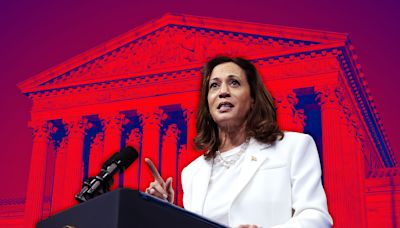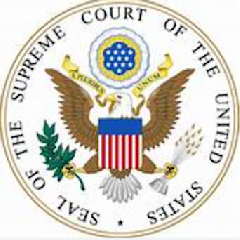Search results
The Supreme Court of the United States (SCOTUS) is the highest court in the federal judiciary of the United States. It has ultimate appellate jurisdiction over all U.S. federal court cases, and over state court cases that turn on questions of U.S. constitutional or federal law .
The Supreme Court Building is closed on weekends and federal holidays. Courtroom Lectures available within the next 30 days. The Court convenes for a session in the Courtroom at 10 a.m. The session may begin with the announcement of opinions - decisions in argued cases - followed by the swearing in of new members to the Bar of the Supreme Court.
The most well-known opinions are those released or announced in cases in which the Court has heard oral argument. Each opinion sets out the Court’s judgment and its reasoning and may include the majority or principal opinion as well as any concurring or dissenting opinions.
President Joseph R. Biden, Jr., appointed her to the United States Court of Appeals for the District of Columbia Circuit in 2021 and then nominated her as an Associate Justice of the Supreme Court in 2022.
- www.usa.gov
- › About the U.S. and its government
The U.S. Supreme Court is the final appellate court of the U.S. judicial system. It has the power to review and overturn the decisions of lower courts.
2 days ago · Supreme Court of the United States, final court of appeal and final expositor of the Constitution of the United States. Within the framework of litigation, the Supreme Court marks the boundaries of authority between state and nation, state and state, and government and citizen.
3 days ago · Each weekday, we select a short list of news articles, commentary, and other noteworthy links related to the Supreme Court. Here’s the Wednesday morning read: US Supreme Court obstruction ruling sparks new legal fights on Jan. 6 riot (Andrew Goudsward, Reuters) Trump faces revised 2020 election interference charges (Max Matza, BBC News)
The best-known power of the Supreme Court is judicial review, or the ability of the Court to declare a Legislative or Executive act in violation of the Constitution, is not found within the text of the Constitution itself. The Court established this doctrine in the case of Marbury v. Madison (1803).
Read the latest U.S. Supreme Court news, from cases and rulings to new nominees and confirmations. Get all of the most up-to-date coverage from AP News.
3 days ago · Supreme Court of the United States - Procedures, Power, Jurisdiction: The Supreme Court, which now enjoys almost exclusive discretion in determining its caseload, hears about 100 cases per term, which begins by statute (set in 1917) on the first Monday in October and typically ends in late June (though from 1873 to 1917 the court began its term ...




